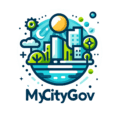A government website is an online platform created and maintained by a government entity, such as a federal, state, or local government. These websites serve as a digital portal for providing information, services, and resources to the public. Here’s an overview of what a government website encompasses:
1. Purpose and Functionality
Government websites are designed to serve multiple purposes, including:
- Information Dissemination: Providing up-to-date information about government policies, programs, initiatives, and services.
- Public Services: Offering online services such as renewing licenses, paying taxes, applying for permits, and accessing public records.
- Citizen Engagement: Facilitating communication between the government and citizens through feedback forms, surveys, and public forums.
- Transparency: Publishing government reports, budgets, meeting minutes, and other documents to ensure transparency and accountability.
2. Types of Government Websites
Government websites can be categorized based on the level of government and the specific functions they serve:
- Federal Government Websites: Managed by national government agencies and departments, these websites provide information and services relevant to the entire country. Examples include USA.gov, IRS.gov, and CDC.gov.
- State Government Websites: Managed by state governments, these websites offer services and information specific to residents of that state. Examples include state department of motor vehicles (DMV) websites and state health department websites.
- Local Government Websites: Managed by city or county governments, these websites provide information and services relevant to local residents. Examples include city council websites, local public school district websites, and municipal service websites.
3. Key Features of Government Websites
Government websites typically include a range of features to enhance usability and accessibility:
- User-Friendly Navigation: Clear and intuitive menus and search functions to help users find information quickly.
- Accessibility: Compliance with accessibility standards to ensure that all citizens, including those with disabilities, can access the information and services provided.
- Multilingual Support: Offering content in multiple languages to cater to diverse populations.
- Security: Implementing robust security measures to protect users’ personal information and ensure the integrity of online services.
- Mobile Responsiveness: Ensuring the website is accessible and functional on mobile devices.
4. Common Sections and Services
While the specific content and services vary depending on the government entity, common sections and services found on government websites include:
- About Us: Information about the government entity, its mission, leadership, and organizational structure.
- News and Updates: Latest news, press releases, and announcements from the government entity.
- Services: Online services such as bill payment, permit applications, voter registration, and more.
- Resources: Access to public records, forms, reports, and other important documents.
- Contact Information: Contact details for various government departments and officials, including phone numbers, email addresses, and office locations.
5. Examples of Government Websites
- USA.gov: The U.S. government’s official web portal, providing links to all federal agencies and a wide range of services.
- IRS.gov: The Internal Revenue Service website, offering tax-related information and services.
- CDC.gov: The Centers for Disease Control and Prevention website, providing health information and resources.
- State DMV Websites: Offering services like driver’s license renewal, vehicle registration, and more at the state level.
- City Council Websites: Providing information about local government meetings, ordinances, and community services.
6. Benefits of Government Websites
Government websites offer numerous benefits to both the public and the government:
- Convenience: Allowing citizens to access information and services online at any time, from anywhere.
- Efficiency: Streamlining government processes and reducing the need for in-person visits to government offices.
- Transparency: Enhancing government transparency by making information readily available to the public.
- Engagement: Facilitating better communication and engagement between the government and citizens.
What MyCityGov.com Can Do
MyCityGov.com is a government website designed to enhance the interaction between local governments and their residents by offering a comprehensive suite of online services and information. Here’s what MyCityGov.com can do:
1. Centralized Information Hub
- Local News and Updates: Stay informed about the latest news, events, and updates in your community.
- Government Directory: Access contact information for local government departments and officials easily.
2. Online Services
- Permits and Licenses: Apply for various permits and licenses online, such as building permits, business licenses, and event permits.
- Bill Payments: Pay local taxes, utility bills, parking tickets, and other fees conveniently online.
- Service Requests: Submit service requests for issues like potholes, streetlight repairs, and sanitation problems.
3. Public Engagement
- Feedback and Surveys: Provide feedback on local issues and participate in surveys to help shape community policies.
- Public Forums: Join online forums to discuss community topics and connect with local officials and fellow residents.
4. Access to Public Records
- Meeting Minutes and Agendas: Access records of city council meetings, agendas, and other public documents.
- Reports and Budgets: View government financial reports, budgets, and performance metrics to stay informed about local governance.
5. Community Resources
- Local Programs and Initiatives: Learn about community programs, workshops, and initiatives that benefit residents.
- Emergency Alerts: Receive real-time alerts and information about emergencies and public safety concerns in your area.
6. User-Friendly Design
- Mobile Accessibility: Access MyCityGov.com on any device, ensuring you can get the information and services you need on the go.
- Multilingual Support: Use the website in multiple languages to accommodate the diverse needs of the community.
7. Enhanced Transparency and Accountability
- Open Data: Access open data sets provided by the local government to promote transparency and allow for independent analysis.
- Performance Dashboards: View dashboards that track the performance of various government services and initiatives.
In summary, MyCityGov.com serves as a powerful tool for local governments to connect with their residents, offering a wide range of online services, information, and resources that enhance convenience, transparency, and civic engagement.
4o
